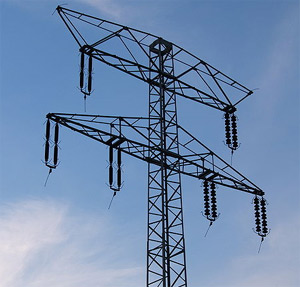 Sault Ste. Marie has long been proclaiming itself the Alternative Energy Capital of North America, and we may soon start to reap the benefits.
Sault Ste. Marie has long been proclaiming itself the Alternative Energy Capital of North America, and we may soon start to reap the benefits.Glen Martin, chief executive officer of Pod Generating Group, presented a project to city council at Monday’s meeting which he thinks could create smart energy jobs, attract high-tech businesses, and help the city better manage its energy.
"Our smart grid project offers a unique opportunity for Sault Ste. Marie to modernize its electricity infrastructure, which will dramatically enhance renewable energy leadership by the city, bringing jobs and added global spotlight,” said Martin.
"Despite the Sault's substantial achievement in renewable energy projects that exceed anything else in North America, very few people outside of the community have heard what's going on here. This project would change that.”
Council passed Ward 1 Councilor Steve Butland’s motion for them to lend their support to Pod Generating Group and requests MPP David Orazietti to arrange a meeting with Chris Bentley, minster of energy.
Martin says he’s met with Orazietti numerous times and the MPP has been helpful in the application process.
Pod Generating - in consultation with the Innovation Centre and PUC - submitted a proposal to the ministry over a year ago requesting $6 million in funding for a smart microgrid project in Sault Ste. Marie.
Since then they’ve been shortlisted and asked to provide a detailed business case application.
Cost of the project is $12 million and Pod would fund the other $6 million needed to complete it.
A smart microgrid is a subset of a macrogrid and it’s a modern, small-scale version of the centralized electricity system that monitors energy usage.
Basically, a microgrid group’s local electricity generation, energy storage, and loads that would otherwise normally connected to the centralized grid (macrogrid).
This single point of common coupling with the macrogrid can technically be disconnected; meaning the mircogrid can function on its own should the city need to disconnect from the provincial grid in an emergency situation.
A self-contained grid would include distributed generation from throughout the city and it would gather information from smart meters regarding the energy load and storage in the community.
Martin said the Sault is an ideal location because many homes already have smart meters.
Information would be monitored at network operation centre and Martin said they are eyeing Algoma University's new Biosciences and Technology Convergence Centre as the location.
Martin said benefits for the community include the opportunity to capitalize on global trends in IT and smart grid applications; along with creating jobs in electrical/mechanical engineering, construction, manufacturing and maintenance.
Other enhancements would be fewer and shorter power outages and real time access to data that could help consumers find ways to lower their monthly bills.
"The experience of the corporate and university campuses that have implemented smart microgrid technology have seen around a 30 percent reduction in power consumption," Martin said.
Currently, the largest microgrid in North America is located at the University of California, San Diego.
Another beneficiary of the project would be the PUC.
Martin said some of the project funding will go towards upgrading PUC infrastructure needed for the project.
Done at scale, this project would make the Sault the first city in North America to implement this type of project on a community-wide level.
Butland said he’s confident the project would prove to be a success and feels there will be benefits to being the first city in North America to pursue such a project.
"Being the first city in North America to do so, I think has to come some rewards,” he said.
"I believe this is a unique opportunity for our city and we have to grasp it. If we don't grasp this it sounds like there's a lot of others chomping at the bit to run with it. We have a leg up, let’s keep it and move forward."